EPJ ST: Denis Machon new Editor on board
- Details
- Published on 09 June 2022

The publishers of The European Physical Journal Special Topics are pleased to announce the appointment of Dr. Denis Machon as new Editor in the board.
Denis Machon completed his PhD at the age of 26 from Grenoble INP and his postdoctoral studies from University College of London. During these years, he worked on pressure-induced amorphization and polyamorphism, both on the experimental and theoretical aspects. As a professor assistant at University Lyon 1, his research interests were centered on high-pressure physics, thermodynamics and phase transitions. His main research activities were devoted to understanding of the combined effects of pressure, size and interface in the phase stability. In 2017, he joined as associated professor the “Laboratoire Nanotechnologies et Nanosystèmes” (LN2), a joint International Research Laboratory co-operated in Canada by “Université de Sherbrooke” and in France by CNRS. At LN2, he works on mesoporous silicon and germanium as anode materials for Li-ion batteries.
He co-authored more than 90 papers and book chapters.
EPJ ST Highlight - Using AI to expand the quality and fairness of urban data
- Details
- Published on 11 April 2022
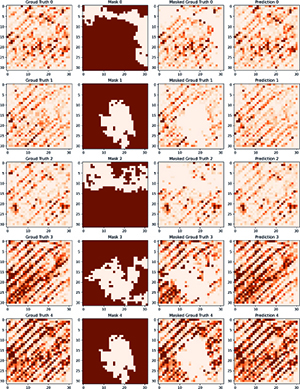
The sparse and inconsistent availability of urban data is currently hampering efforts to manage our cities fairly and effectively – but this could be solved by exploiting the latest advances in artificial intelligence.
Our cities are remarkably complex systems. Every day, they host countless numbers of interconnected exchanges between people and processes, generating vast amounts of data in turn. Researchers have begun to explore how this information could be used to improve urban environments – but due to limitations in its quality, these efforts continue to face significant challenges. Through detailed analysis published in EPJ ST, Bill Howe and colleagues at the University of Washington, USA, propose how artificial intelligence (AI) could be used to expand the coverage, access, and fairness of data collected in cities.
EPJ ST Highlight - An overview of neutrinos and their interactions
- Details
- Published on 18 February 2022
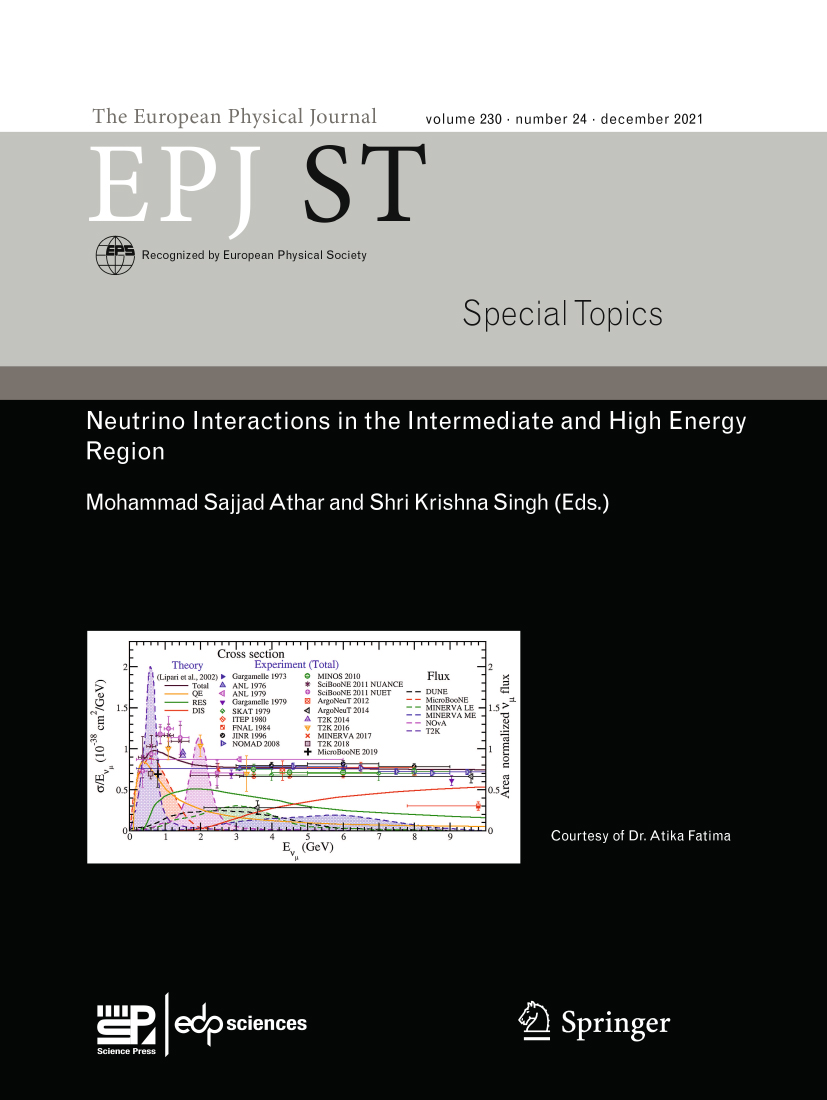
A new summary of the study of neutrinos, and the ways in which they interact with regular matter, could inspire both new and senior neutrino researchers to open up new areas of investigation within the field.
The history of our understanding of neutrinos, from their astrophysical origins to their elusive interactions with matter, is full of surprises. Although we know that they are the second most abundant particles in the universe after photons, they are also the least well understood. In this special issue of EPJ ST, M. Sajjad Athar and S.K. Singh at Aligarh Muslim University present a short overview of the study of neutrinos, and the ways in which they interact with other forms of matter at mid-to-high energies.
EPJ ST Highlight - A new era of research into laser-matter interactions
- Details
- Published on 08 February 2022
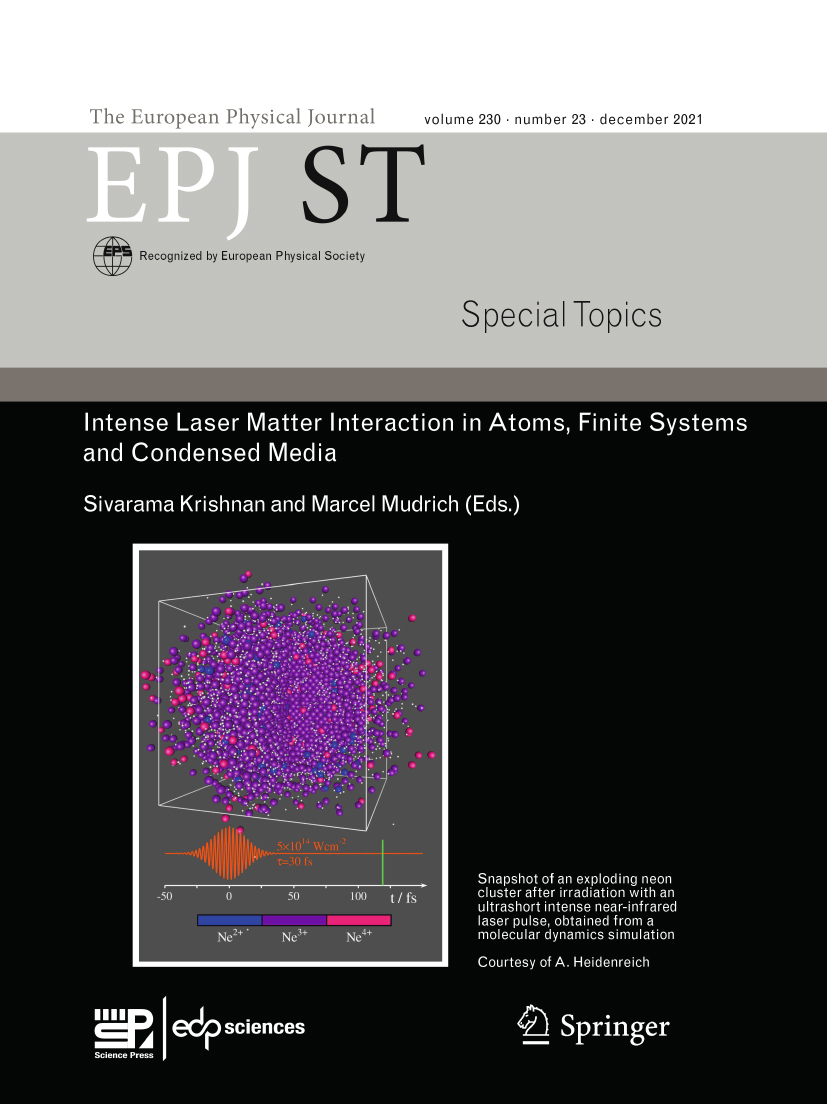
A new collection of papers provides new experimental and theoretical perspectives on the interaction between matter and intense laser beams
Studies of laser-matter interactions are an important and rapidly growing area of physics. This special issue of EPJ ST, edited by Sivarama Krishnan at the Indian Institute of Technology Madras and Marcel Mudrich at Aarhus University, Denmark, contains a set of 21 articles in this field, encompassing a broad range of experimental and theoretical approaches. The collection provides researchers with useful insights into this burgeoning area of science, and the exciting applications it may soon lead to.
EPJ ST: Baohua Ji new Editor on board
- Details
- Published on 17 January 2022
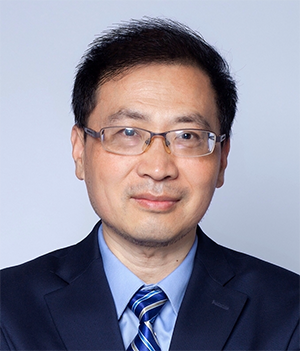
The publishers of The European Physical Journal Special Topics are pleased to announce the appointment of Dr. Baohua Ji as new Editor in the board.
Dr. Baohua Ji is currently professor of biomechanics of Zhejiang University. He earned his B.S and Ph.D degrees from Xi’an Jiaotong University of China in 1993 and 1998, respectively. He did his postdoc research at Institute of Mechanics of Chinese Academy of Science during 1998-2001, and at Max-Planck Institute for Metal Research during 2001-2004. His research is currently focused on cell-matrix interaction, collective cell behaviors, and mechanomedicine (mechanobiology based medicine). The objective of the research is to achieve a quantitative understanding of how forces and deformation affect human health and disease from molecular, cellular and tissue levels. Dr. Ji has published over 120 peer-reviewed Journal papers. And he has received several awards including the Outstanding Young Scientist Award of the Chinese Society of Theoretical and Applied Mechanics (2009), the NSFC Outstanding Young Scientists Award (2010) and National 10-Thousand program for leading talents (2017).
EPJ ST Highlight - Examining recent developments in Quantum Chromodynamics
- Details
- Published on 14 December 2021
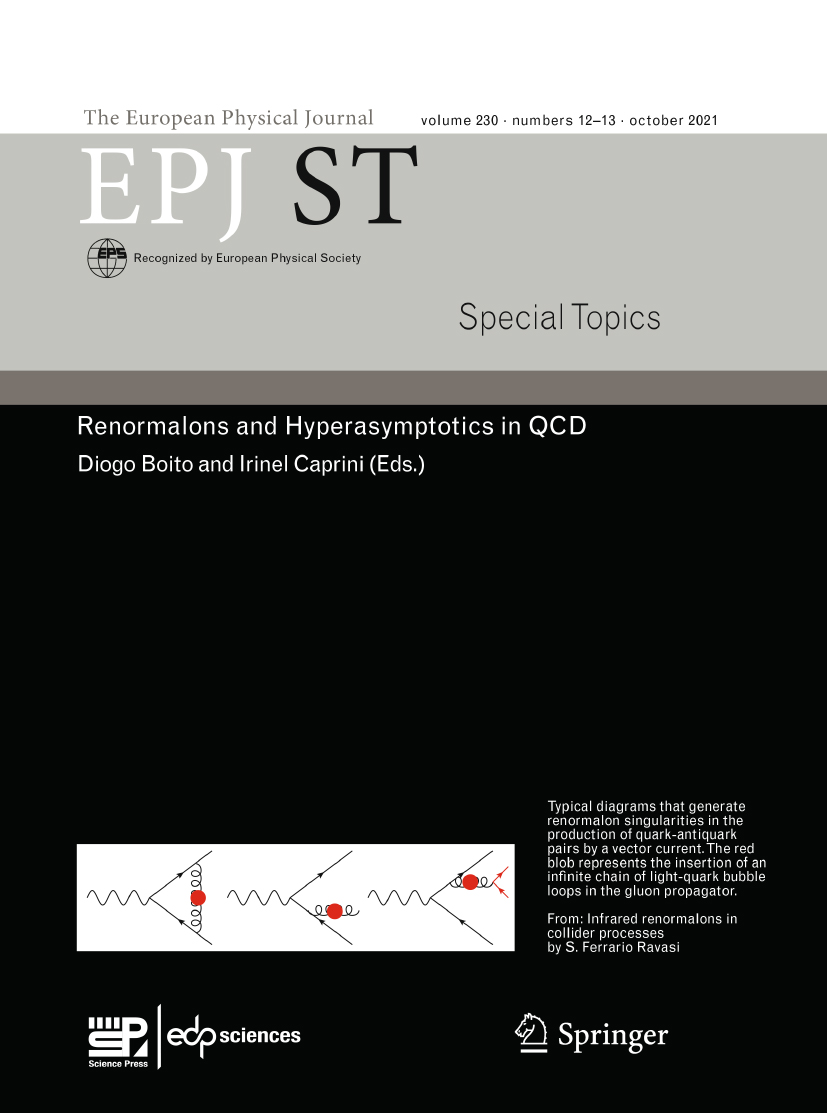
The strong nuclear force is responsible for binding together quarks, the basic building blocks of protons and neutrons, that comprise almost all of the visible matter. A new collection looks at recent development in the field of Quantum Chromodynamics (QCD) from a range of perspectives.
Created as an analogy for Quantum Electrodynamics (QED) — which describes the interactions due to the electromagnetic force carried by photons — Quantum Chromodynamics (QCD) is the theory of physics that explains the interactions mediated by the strong force — one of the four fundamental forces of nature.
A new collection of papers published in EPJ Special Topics, and edited by Diogo Boito, Instituto de Fisica de Sao Carlos, Universidade de Sao Paulo, Brazil, and Irinel Caprini, Horia Hulubei National Institute for Physics and Nuclear Engineering, Bucharest, Romania, brings together recent developments in the investigation of QCD.
EPJ ST Highlight - An exploration of tipping in complex systems
- Details
- Published on 22 November 2021
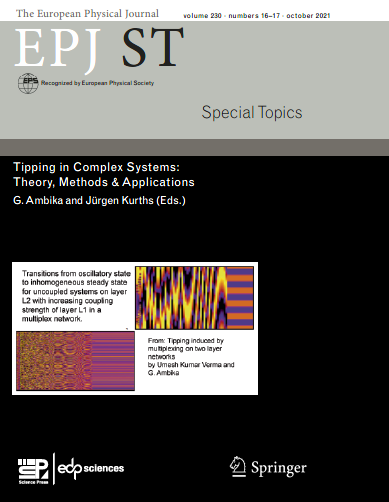
This special issue examines the extensive landscape of research into tipping within complex systems, and provides guidance as to where the field will likely be headed in the future.
Complex systems can be found in a diverse array of real-world scenarios, but are unified by their ability to suddenly transition between drastically different patterns of behaviour. Known as ‘tipping,’ this type of transformation is generally triggered by small changes in the parameters of individual systems – whose effects can rapidly cascade to alter entire networks of interacting subsystems. This special issue of EPJ Special Topics explores the nature of tipping in complex systems through 21 new articles. Together, the studies reveal recent trends and directions of research within the field, and highlight the pressing challenges it will face in the future.
EPJ ST Highlight - Examining the dynamics of complex networks
- Details
- Published on 15 November 2021
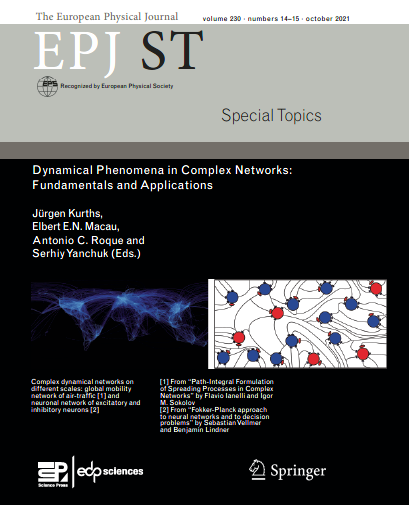
A new collection of papers focuses on the theories and methodology of dynamical networks with a focus on neuroscience and Earth sciences, and climate systems.
A special issue of EPJ Special Topics, edited by Jürgen Kurths (Potsdam Institute for Climate Impact Research), Elbert E. N. Macau (Federal University of São Paulo), Antonio C. Roque (University of São Paulo) and Serhiy Yanchuk (Humboldt University Berlin) brings together a collection of papers focusing improving our understanding of the collective dynamics of complex systems. The special issue pays particular attention to the applications of this understanding in the diverse fields of neuroscience, climate modelling, and Earth science.
EPJ ST: Shahriar Afkhami new Editor on board
- Details
- Published on 22 October 2021

The publishers of The European Physical Journal Special Topics are pleased to announce the appointment of Professor Shahriar Afkhami as new Editor in the board.
Shahriar Afkhami, is Professor in the Department of Mathematical Sciences at New Jersey Institute of Technology and his research interests lie at the interface of applied mathematics, chemical engineering, and mechanical engineering. He is particularly interested in computational and mathematical modeling of complex systems including viscoelastic liquids, electro/magnetohydrodynamics, interfacial flows in porous media, dynamic contact lines, and microfluidics. The main focus of his research is based on developing accurate and robust numerical methods for describing moving boundaries involving multiple phases and complex flows.
EPJ ST: Alfonso San Miguel new Editor on board
- Details
- Published on 22 October 2021

The publishers of The European Physical Journal Special Topics are pleased to announce the appointment of Alfonso San Miguel, professor at the University Lyon 1 and president of the Rhône section of the French Physical Society, who will support EPJ ST in Materials Science.
Alfonso San Miguel explores the physical properties of matter under extreme conditions of pressure and temperature including semiconductors, liquids or simple molecular systems. He presently focuses on the evolution of geometry, topology and dimensionality under extreme conditions, in particular in nanomaterials and low dimensional systems. He has a taste for instrumental development and interdisciplinary work combining theory and experience with specialists from different fields (physics, chemistry, mathematics, engineering).




